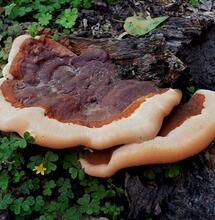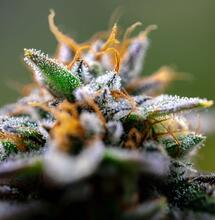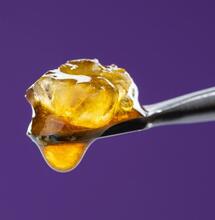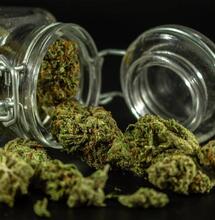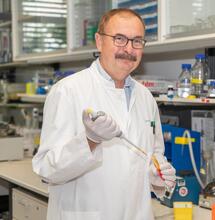How Long Does THC Stay in Your Body?
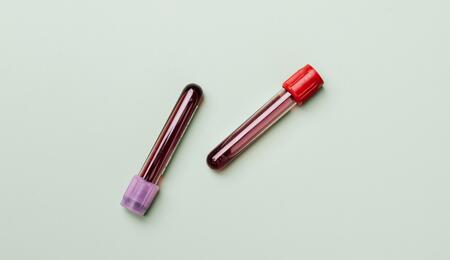
Marijuana can remain in the body between one week and three months in the form of byproducts from the metabolic process. The amount of Cannabis inhaled or ingested does not necessarily determine the duration of metabolites in the system. Each person is different, so it's hard to predict how long the body stores traces of THC.
Last year, a friend of mine who took a few puffs in the month of January told me that THC presence showed up in a blood test he took sometime in the spring. Of course, this is an exceptionally rare case. This person has an autoimmune disease affecting his bowels and skin, which may explain why his body stored byproducts from weed for such an extraordinarily long time.
A healthy person who smokes occasionally will flush cannabis out of the body in a matter of days. The amount and frequency of use will increase the time needed for the body to cleanse from THC byproducts. Samples of urine, blood, saliva, hair and other bodily fluids can all indicate if a person has recently smoked or has been exposed to marijuana in any other way.
Urine
Cannabis metabolites tend to bind with fat molecules in the body which are then excreted in the urine. Therefore, urine testing is one of the most convenient ways to detect cannabis presence in the human organism.
The primary metabolite traceable in the urine is THC-COOH. Most drug tests will show a positive result when the concentration of THC-COOH exceeds 50 ng/ml in the urine sample. However, CBD oil, hemp seed and low THC products may yield false positives. (It makes me think now, is it the illness or could it have been a false positive in my friend's case?)
Below is an approximate time estimate of how long THC remains detectable in the urine after stopping use.
- Occasional users (smoking up to three times a week): 3 days
- Moderate users (smoking four times a week: between 5 and 7 days
- Daily users (smoking one joint per day): between 5 and 7 days
- Heavy users (smoking several times a day): 30 days or over a month
Blood
Cannabis is immediately traceable in the blood seconds after smoking and inhalation. For example, blood tests are commonly used in police investigations to confirm driving under the influence in traffic accidents.
Weed is traceable in the blood for approximately 12-24 hours in occasional and moderate users. In frequent or heavy users, it may remain detectable for up to a week and sometimes more time than that. Blood may contain both THC and derivatives such as THC-COOH.
Oral fluids
A saliva test can also yield a positive result if a person has smoked, inhaled, ingested, or has simply been exposed to weed smoke. In occasional users, cannabis is traceable in oral fluids between 1 and 3 days. In heavy users, it remains detectable for no more than a month.
Hair
Hair testing is one of the most accurate ways to determine long-term exposure to any substance, including cannabis. A 1.5-inch segment of hair stores information on all your drug consumption for the past three months.

What Impacts How Long Cannabis Stays in the System?
Metabolism speed is the most critical factor determining how long cannabis will remain traceable in the system. Each body has a unique blood renewal cycle. In theory, occasional users are supposed to process THC much faster than habitual users.
Age, body mass and gender might also influence how long cannabis remains traceable in the body. For example, women may take more time to process cannabis than men. The dose and frequency of use are also substantial factors, as are strain potency and delivery methods. A product high in THC will generate greater concentrations in the system. Edibles may need more time than flower to dissolve.
Can You Clean Your Body from Toxins?
Shortening the time of how long THC stays in the body cannot be achieved in artificial ways. Again, the removal process largely depends on metabolism speed or the body's ability to digest Cannabis, clean blood, and flush out metabolites and toxins. The slower the body works, the longer it takes THC byproducts to dissolve.
Foods, herbs and supplements that are supposed to detox the system or help renew the blood can only partially help in the process. It might result in a slightly faster body cleaning, but the effect is never immediate.
If you are anticipating a drug test where you need to return a negative THC result, it's best to refrain from any use of weed for as long as possible before the test is taken.


